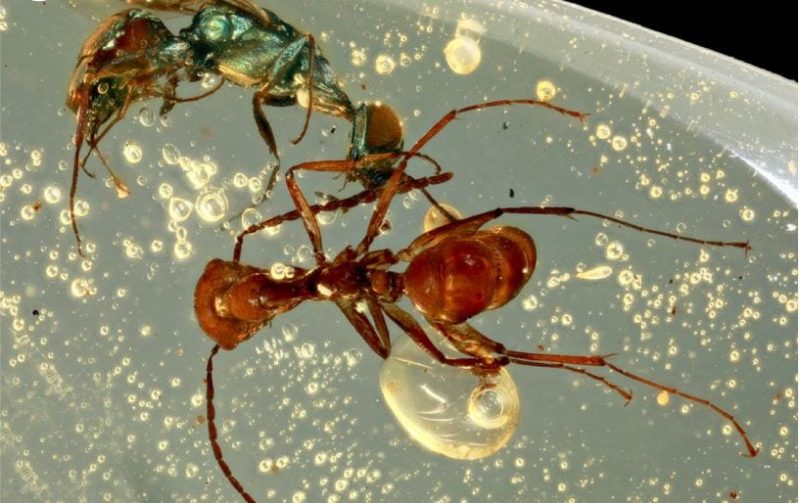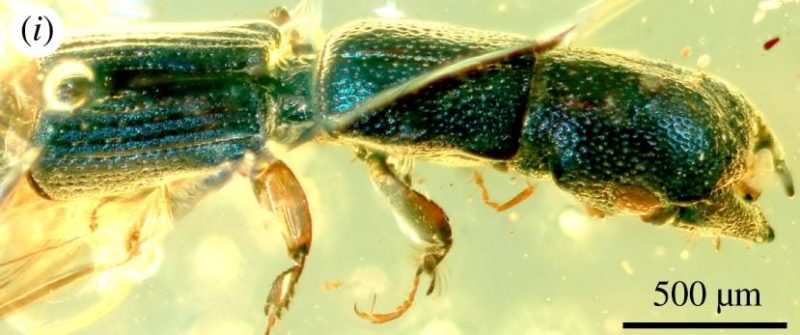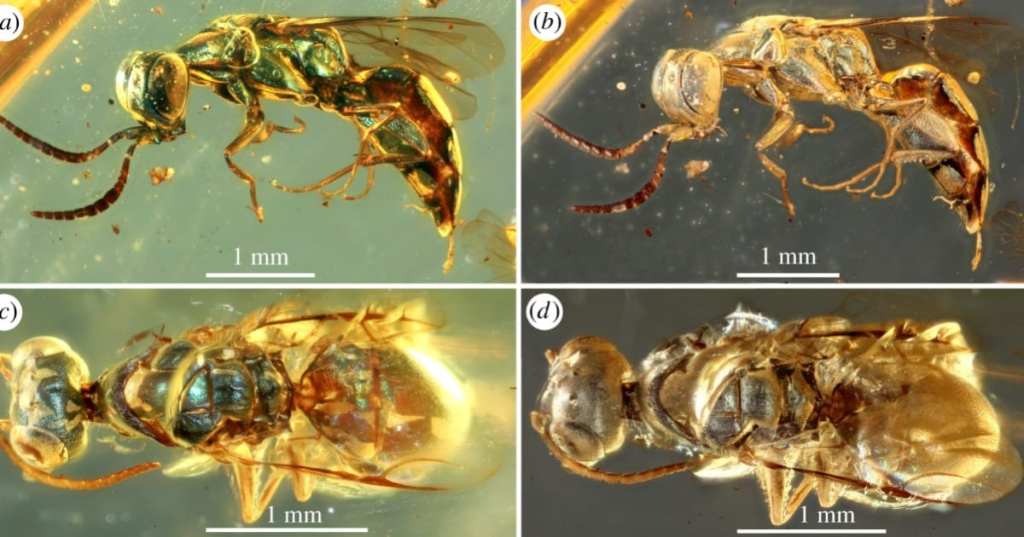Scientists can learn a ton from studying fossils. But these precious pieces of preserved life still leave us those science sleuths with many unanswered questions.
For example, scientists can’t tell what color an animal was based on just a fossil. Luckily, though, there are exceptional cases that do allow scientists to glean more information than what happens in most cases.

Photo Credit: NIGPAS
Recently, a team of researchers at the Nanjing Institute of Geology and Paleontology published a paper in the journal Proceedings of the Royal Society B. And in doing so, the group successfully identified the true colors of three ancient insects that have been preserved in amber.
Incredibly, the insects have been on Earth for quite some time—99 million years to be exact (kind of). By staying preserved in amber, scientists have been able to see their true color, which certainly represents a rarity in the field of fossils.
James Lamsdell, a University of West Virginia paleobiologist who was not involved in the research, said…
“The way that the color is preserved in these things is really remarkable.
There have been reports of color in the fossil record before, but often what we’re looking at is not the true color, because it’s been changed by the fossilization process.”
Though in some cases finding the true color proved difficult, Lamsdell explained that scientists can gather clues from the cellular structure of the exoskeleton and extrapolate what the color most likely was.

Photo Credit: NIGPAS
However, in this case, after polishing the amber off the specimens, scientists could see blue, green, and purple colors when viewing the insects.
While the discovery certainly deserves attention, it also brought up a potential downside. Because amber comes from the sap produced by trees in Myanmar’s Kachin state, that means harvesting amber has become a lucrative business that can have a negative effect on the environment.

Photo Credit: NIGPAS
Perhaps in showcasing these awe-inspiring insects, scientists have also shed light on the potential dangers of amber harvesting.
Have you ever taken a look at fossils back in science class or at a museum? What interests you in learning about ancient animals? Tell us more in the comments below!






